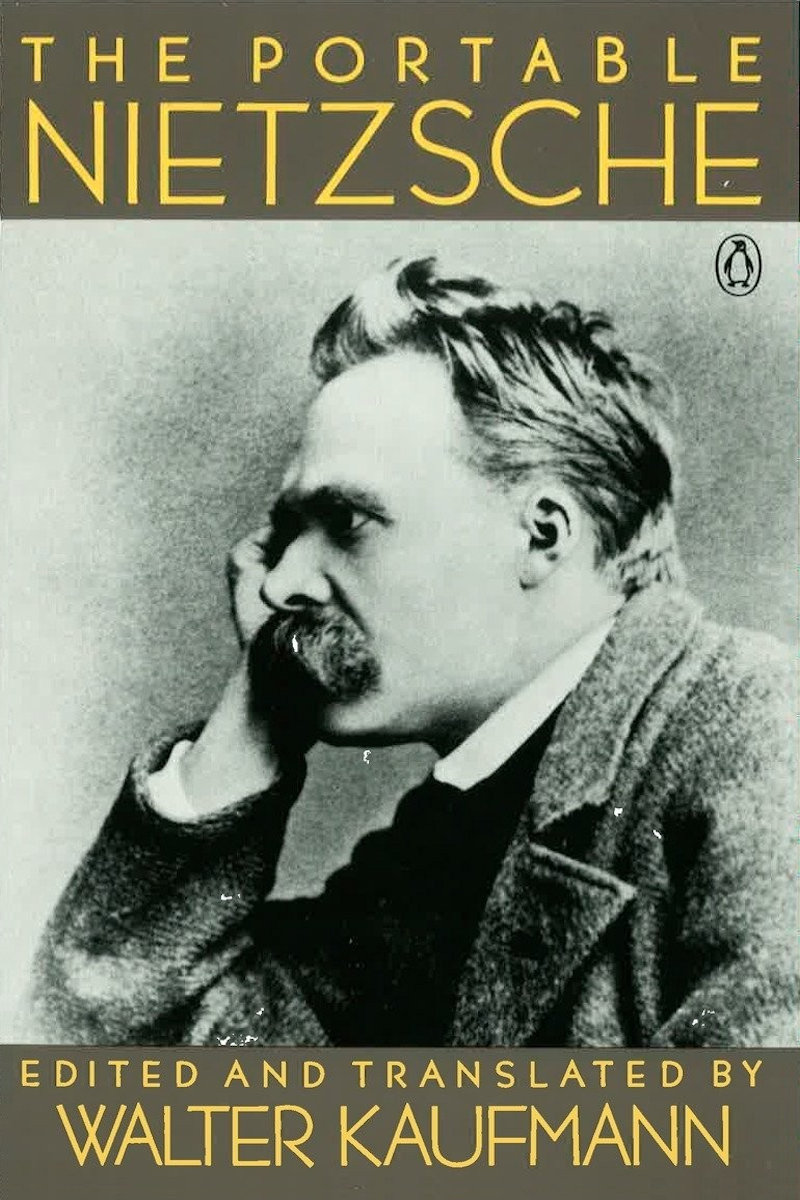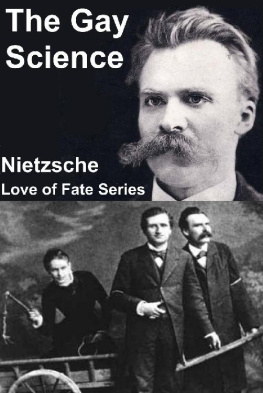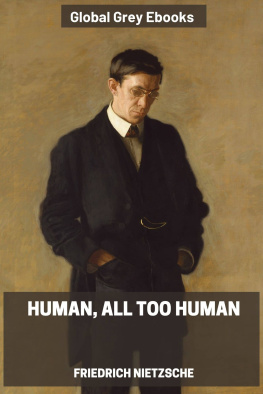Friedrich Nietzsche - The Portable Nietzsche
Here you can read online Friedrich Nietzsche - The Portable Nietzsche full text of the book (entire story) in english for free. Download pdf and epub, get meaning, cover and reviews about this ebook. year: 1977, publisher: Penguin, genre: Science. Description of the work, (preface) as well as reviews are available. Best literature library LitArk.com created for fans of good reading and offers a wide selection of genres:
Romance novel
Science fiction
Adventure
Detective
Science
History
Home and family
Prose
Art
Politics
Computer
Non-fiction
Religion
Business
Children
Humor
Choose a favorite category and find really read worthwhile books. Enjoy immersion in the world of imagination, feel the emotions of the characters or learn something new for yourself, make an fascinating discovery.

- Book:The Portable Nietzsche
- Author:
- Publisher:Penguin
- Genre:
- Year:1977
- Rating:3 / 5
- Favourites:Add to favourites
- Your mark:
- 60
- 1
- 2
- 3
- 4
- 5
The Portable Nietzsche: summary, description and annotation
We offer to read an annotation, description, summary or preface (depends on what the author of the book "The Portable Nietzsche" wrote himself). If you haven't found the necessary information about the book — write in the comments, we will try to find it.
The Portable Nietzsche — read online for free the complete book (whole text) full work
Below is the text of the book, divided by pages. System saving the place of the last page read, allows you to conveniently read the book "The Portable Nietzsche" online for free, without having to search again every time where you left off. Put a bookmark, and you can go to the page where you finished reading at any time.
Font size:
Interval:
Bookmark:


Published by the Penguin Group
Penguin Group (USA) Inc., 375 Hudson Street, New York, New York 10014, U.S.A.
Penguin Group (Canada), 90 Eglinton Avenue East, Suite 700, Toronto,
Ontario, Canada M4P 2Y3 (a division of Pearson Penguin Canada Inc.)
Penguin Books Ltd, 80 Strand, London WC2R oRL, England
Penguin Ireland, 25 St Stephens Green, Dublin 2, Ireland
(a division of Penguin Books Ltd)
Penguin Group (Australia), 250 Camberwell Road, Camberwell,
Victoria 3124, Australia (a division of Pearson Australia Group Pty Ltd)
Penguin Books India Pvt Ltd, 11 Community Centre, Panchsheel Park,
New Delhi110 017, India
Penguin Group (NZ), 67 Apollo Drive, Mairangi Bay,
Auckland 1311, New Zealand (a division of Pearson New Zealand Ltd)
Penguin Books (South Africa) (Pty) Ltd, 24 Sturdee Avenue,
Rosebank, Johannesburg 2196, South Africa
by Viking Penguin Inc. 1954
Paperbound edition published 1959
Reprinted 1959 (twice), 1960 (twice), 1961 (three times),
1962 (twice), 1963 (twice), 1964 (twice), 1965 (twice),
1966 (twice), 1967 (twice), 1968 (three times), 1969 (three times),
1970 (three times), 1971 (three times), 1972 (three times),
1973, 1974 (twice), 1975, 1976
Published in Penguin Books 1976
Copyright 1954 by Viking Penguin Inc. Copyright Viking Penguin Inc., 1968 Copyright renewed 1982 by Viking Penguin Inc. All rights reserved.
Nietzsche, Friedrich Wilhelm, 1844-1900.
The portable Nietzsche.
Reprint of the 1954 ed. published by The Viking Press, New York,
which was issued as no. 62 of Viking portable library.
Bibliography. p. 688.
1. PhilosophyCollected works. I. Title.
[B3312.E52K3 1976] 193 76-47577
http://us.penguingroup.com
Font size:
Interval:
Bookmark:
Similar books «The Portable Nietzsche»
Look at similar books to The Portable Nietzsche. We have selected literature similar in name and meaning in the hope of providing readers with more options to find new, interesting, not yet read works.
Discussion, reviews of the book The Portable Nietzsche and just readers' own opinions. Leave your comments, write what you think about the work, its meaning or the main characters. Specify what exactly you liked and what you didn't like, and why you think so.












